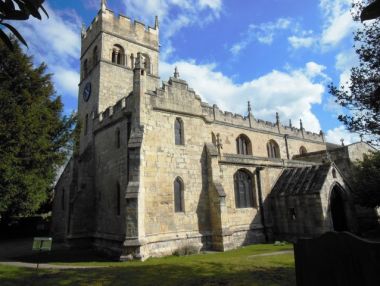Church of England pensions: A disaster waiting to happen?

A former secretary to the Church Commissioners has defended them against accusations that they are "in denial" about pension problems that are putting the very future of the Church of England at stake.
Leading pensions consultant John Ralfe said in a letter to the Financial Times: "The Archbishop of Canterbury has warned that many UK banks are 'in denial'. Sadly, however, the Church itself is in denial about the scale of its pension problems, which threaten to undermine its finances and, in turn, the future of the Church itself."
Ralfe was writing after the latest annual report from the Church Commissioners showed growth on investments to £6.7 billion, far above inflation, meaning the Church has enough funds to finance ambitious plans for expansion. Plans have already been approved by the General Synod to release an extra £100 million to pay for more clergy.
Ralfe wrote that although Commissioners' funds can be and are used for pastoral and charity work, the first call is clergy pensions earned before 1998. A separate fund pays those earned after that date. Ralfe says that if the same method of accounting used by private companies to calculate pension liabilities had been used by the Commissioners, liabilities would have amounted to £2.4 billion and not the £1.8 billion earmarked.
He claims that as a result the value of investment income available for pastoral work is less than claimed by the Church, and says the Church has also underestimated the deficit in the pension scheme.
The Commissioners declined to comment to Christian Today.
However, in a response to the FT, Christopher Daws, former secretary to the Commissioners, says the method used by private companies to calculating pension liabilities is a "bodged compromise based on the false premise that pension liabilities are wholly those of the sponsoring company in whose balance sheet they are portrayed."
He says this method overlooks the fact that an independent fund usually exists to pay those liabilities.
He adds: "The Commissioners' report includes a full report by their consulting actuaries, unique to my knowledge, which explains their reasoning. I take pride in having worked with their actuaries at the time in the 1990s to develop this approach, which has served the Church admirably for over twenty years."











